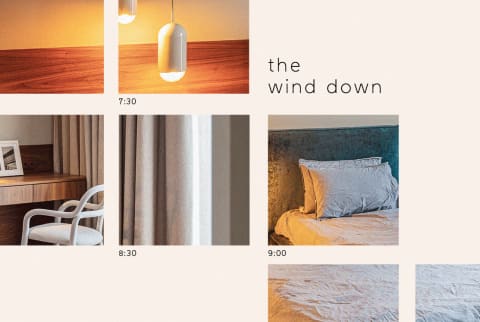Advertisement
I'm A Neurophysiologist & This Is My #1 Sleep Performance Hack


Over the years, I've come to understand the importance of sleep for overall health and well-being. There was a period when I faced sleep difficulties due to work-related stress, which lasted for several months. I managed to overcome it by implementing relaxation techniques and focusing on sleep hygiene.
I have my best night's sleep when I am stress-free, and I know I have ticked everything off the action item list. Next to that, my best sleep also occurs when I have completed a massive workout and have primed my brain and body for sleep, which usually starts at 8:30 p.m. each night.
I sleep best when my environment is calm and free from distractions. My biggest barriers to a solid night's sleep have been exposure to artificial light, inconsistent sleep schedules, and stress. These factors can interfere with my circadian rhythm and make it more challenging to fall into a deep, restorative sleep.
Keeping a sleep journal has allowed me to track patterns and make necessary adjustments to my routine. Additionally, using blue light filters on my devices in the evening has reduced my exposure to artificial light, which can interfere with melatonin production and sleep quality. Most importantly, I never sleep without my eye mask. It truly is the biggest sleep performance tool hack I can recommend to anybody.
Sleep is crucial to me personally because it's a foundational aspect of brain and physiological health. I sleep best when I prioritize it, as it allows me to think more clearly, be more productive, and maintain a positive mood. A good night's sleep enhances my cognitive function and energy levels, enabling me to achieve my daily goals and contribute to my research and work.

- Average hours I sleep a night: 8
- Ideal bedtime: 10 p.m.
- Ideal wake-up time: 6 a.m.
- Nightstand essentials: Dark room, eye mask, cold mattress
- Favorite place I've ever slept: My childhood bed
- Sleep bad habit: Watching TV in bed
- Caffeine consumption: I don't consume caffeine
- How I track my sleep: Aggressively use OURA
- The last product or habit that changed my sleep for the better: The Magnesium L-Threonate from Momentus (a company I sit on the board of)
- The first thing I do when I wake up: Walk onto my balcony

7 p.m.: I start my evening by enjoying some leisure time, perhaps reading or spending time with family. This is also when I prepare my last meal of the day, ensuring it's ready by 8.
8 p.m.: I have my last meal at this time, focusing on nutritious and easily digestible foods that won't disrupt my sleep later on.
8:30 p.m.: I begin to wind down, avoiding any mentally stimulating activities like answering emails or engaging in intense work. This is a time for relaxation and preparing my mind for sleep.
8:45 p.m.: I take a hot shower to help me feel sleepy. The warm water helps relax my muscles and signals to my body that it's time to start winding down.
9:45 p.m.: I get into bed, settling into my temperature-controlled mattress, which helps maintain an optimal sleeping environment. I may spend a few minutes reading something light or practicing deep breathing to relax further.
10 p.m.: By this time, I'm typically asleep, allowing my body and mind to rest and rejuvenate for the next day.